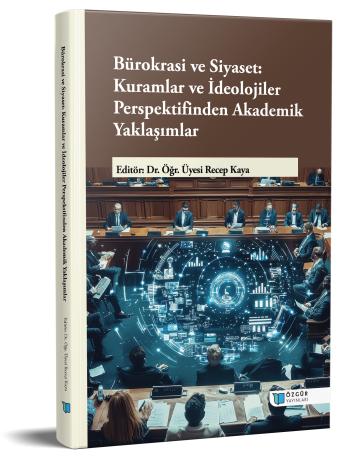
Fundamental Approaches to Bureaucracy-Politics Relations
Chapter from the book:
Kaya,
R.
(ed.)
2025.
Bureaucracy and Politics: Academic Research from The Perspective of Theories and Ideologies.
Synopsis
Bureaucracy and politics are considered two fundamental elements of state administration. Bureaucracy establishes a regular and efficient management mechanism, while politics ensures the reflection of the people's will in governance. Bureaucracy is a structure based on technical expertise and rules, whereas politics is a dynamic and ideological process. The relationship between bureaucracy and politics constitutes one of the core dynamics of the functioning of the state. In democratic systems, elected politicians represent the will of the people, while bureaucrats ensure the implementation of public policies. However, this relationship does not always proceed harmoniously and smoothly; at times, it brings up discussions of bureaucratic tutelage or political interference. The primary sources of power that bureaucracy can wield against politics include expertise, institutional memory, and independent oversight mechanisms. In contrast, politicians hold the power to direct the bureaucracy through tools such as appointment authority, budget control, and legislative amendments. This reciprocal power balance plays a decisive role in the functioning of the governance mechanism. The theoretical approaches developed to understand the bureaucracy-politics relationship address this dynamic from different perspectives. While Woodrow Wilson and Frank Goodnow argued that politics determines policies and bureaucracy implements them, John Stuart Mill and Clifford Dwight Waldo suggested that bureaucracy has an ideological dimension. Leonard White stated that public administration should be shaped based on the principles of neutrality and professionalism. Ultimately, maintaining the balance between bureaucracy and politics is a critical necessity for strengthening the democratic governance model and ensuring the effectiveness of public services. The transparency of administrative processes, increasing accountability, and strengthening democratic oversight mechanisms are among the key objectives of modern public administration.

